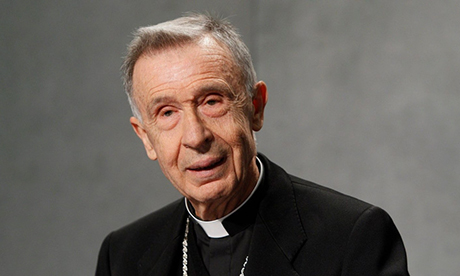A rare public dispute between top Vatican officials unfolded at the opening of a conference in Rome on Humanae Vitae, the 1968 encyclical reaffirming the Catholic Church’s opposition to artificial contraception.
Jesuit Cardinal Luis Ladaria (pictured), the prefect of the Dicastery for the Doctrine of the Faith and Archbishop Vincenzo Paglia, president of the Pontifical Academy for Life, presented differing interpretations during the May 19-20 conference.
The conference, organised by the Jérôme Lejeune International Chair of Bioethics, brought together researchers from Catholic universities.
Cardinal Ladaria defended the encyclical’s “prophetic vision” in his address.
“The truth expressed in Humanae Vitae does not change,” said the 79-year-old cardinal. “There are too many voices, amplified by modern propaganda media, that contrast with that of the Church.”
Ladaria stated that the encyclical remains relevant and addresses the opposing perspectives that view the body as a tool for manipulation. He criticised moral relativism, contraceptive anthropology and transhumanism, arguing that these ideologies diminish the body to a mere object that can be easily controlled.
In contrast, Archbishop Paglia presented a different interpretation of Humanae Vitae in an interview published by Vatican Media.
“The recognition of the unbreakable connection between married love and generation in Humanae Vitae does not mean that every marital act must necessarily bear fruit,” explained the 78-year-old Italian archbishop.
“St Paul VI recognises that procreation must be ‘responsible’ and – as is well known – points to natural methods as the way to exercise this responsibility,” he continued.
While Cardinal Ladaria presented the encyclical as an unchanged text, Archbishop Paglia sketched a very different vision.
“I believe continued reflection on the subject is very important, as are wide-ranging discussions. Indeed Pope Francis, speaking about contraception, has said that ‘the duty of theologians is research, theological reflection’,” the archbishop said.
“We are facing epochal challenges. In the Sixties, the ‘pill’ was considered a total evil,” he continued.
“Today, we face even greater dangers. All human life is at risk if we don’t stop a spiralling conflict, the arms race, if we don’t stop destroying the environment,” Paglia argued.
The clash between Cardinal Ladaria and Archbishop Paglia emerged amidst ongoing debates within the Pontifical Academy for Life. The confrontations shed light on differing perspectives within the Vatican on matters of sexual morality and bioethics.
Sources
Additional reading
News category: World.




